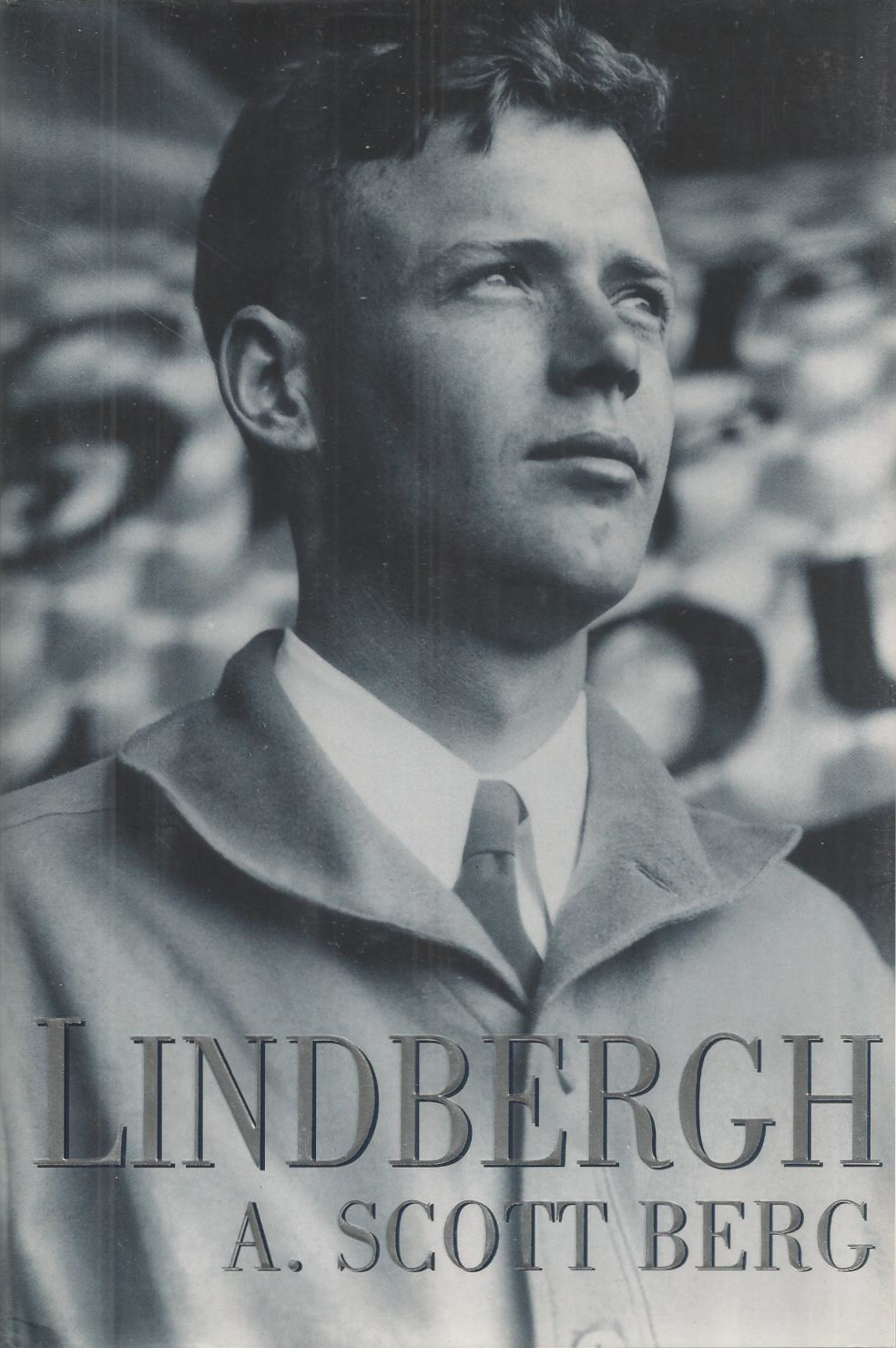Hardcover, 628 pages
English language
Published Sept. 21, 1998 by G.P. Putnam's Sons.

Hardcover, 628 pages
English language
Published Sept. 21, 1998 by G.P. Putnam's Sons.
From one of America's most acclaimed biographers, author of the bestselling lives of Maxwell Perkins and Samuel Goldwyn, here at last is the definitive life of one of the most legendary, controversial, and enigmatic figures in American history--Charles A. Lindbergh.
National Book Award winner A. Scott Bergis the first and only writer to have been given unrestricted access to the massive Lindbergh archives--more than two thousand boxes of personal papers, including reams of unpublished letters and diaries--and to be allowed freely to interview Lindbergh's friends, colleagues, and family members, including his children and his widow, Anne Morrow Lindbergh. The result is a brilliant biography that clarifies a life long blurred by myth and half-truth.
From the moment he landed in Paris on May 21, 1927, Lindbergh found himself thrust upon an odyssey for which he was ill prepared--the first modern media superstar, deified and demonized many times over in a …
From one of America's most acclaimed biographers, author of the bestselling lives of Maxwell Perkins and Samuel Goldwyn, here at last is the definitive life of one of the most legendary, controversial, and enigmatic figures in American history--Charles A. Lindbergh.
National Book Award winner A. Scott Bergis the first and only writer to have been given unrestricted access to the massive Lindbergh archives--more than two thousand boxes of personal papers, including reams of unpublished letters and diaries--and to be allowed freely to interview Lindbergh's friends, colleagues, and family members, including his children and his widow, Anne Morrow Lindbergh. The result is a brilliant biography that clarifies a life long blurred by myth and half-truth.
From the moment he landed in Paris on May 21, 1927, Lindbergh found himself thrust upon an odyssey for which he was ill prepared--the first modern media superstar, deified and demonized many times over in a single lifetime. Berg casts dramatic new light on the lonely, sometimes twisted childhood that formed his character; the astonishing flight and thrilling, then overwhelming aftermath; the controversies surrounding the trial of his son's accused kidnapper; the storm over Lindbergh's fascination with Hitler's Germany and over his active role in the isolationist America First movement; and his remarkable unsung work devoted to medical research, rocketry, anthropology, and conservation. At the heart of it all is his fascinating, complex marriage with Anne Morrow Lindbergh, a relationship far from the storybook romance the public imagined, one filled with sudden joy and bitter darkness, and which forged her into one of the century's leading feminist voices.
Young, handsome, and of seemingly impeccable character, Lindbergh became the most popular figure of his day--a romantic symbol for the new aviation age and all its possibilities. His marriage to an ambassador's daughter enthralled people around the world, transforming them both into larger-than-life characters.
And then one windy night in 1932, their charmed lives turned tragic, when their twenty-month-old son was kidnapped. After ten anguishing weeks of rescue efforts, the body of "the Lindbergh baby" was found half buried in a ditch off a New Jersey roadside. As never before, Berg examines the evidence of the "Crime of the Century" and takes us into the courtroom of what many still consider the "Trial of the Century"--events that continue to reverberate in the public imagination to this day.
The sensational press and public hysteria that dogged the Lindberghs forced them into exile. We follow them to England, to their own private island off the coast of France, and to Germany, where the law and order as well as the advanced technology of the Third Reich entranced the aviator, to disastrous effect. The result became even worse when, as the leading spokesperson for America First, Lindbergh challenged FDR head-on, and lost. With the bombing of Pearl Harbor, Lindbergh tried to enlist, but the president refused to let him serve, forcing a frustrated Lindbergh, now in his forties, to work his way as a test pilot to the South Pacific, where he unofficially-and brilliantly-flew fifty combat missions.
Lindbergh deliberately kept the rest of his life as hidden from the public as possible. A. Scott Berg now exposes the many facets of the private Lindbergh, including his ingenious medical work with Dr. Alexis Carrel, developing the precursor to an artificial heart; his pioneering support of rocket scientist Robert H. Goddard; his soul-searching visit to Camp Dora at Bergen-Belsen; his life with the primitive Masai tribe in Africa, and his discovery of the Tasaday in the Philippines; his fight to save the whales off the coasts of Japan and Peru; and his deeply moving final days in Maui, where he supervised the digging of his own grave.
In all, this is a most compelling story of a most significant life: the most private of public figures finally revealed with a sweep and detail never before possible. In the skilled hands of A. Scott Berg, this is at once Lindbergh the hero-and Lindbergh the man.